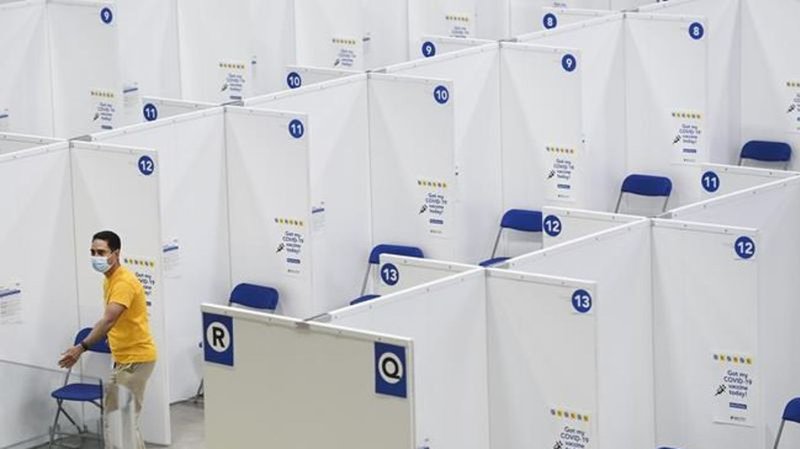
Provinces consider COVID-19 vaccine incentives to reach those not getting shots
Canada’s two most populous provinces continued to see a steady decline of COVID-19 infections and hospitalizations as some leaders mulled vaccine incentives to connect with hard-to-reach populations.
“Some people are scared — with no reason — about the vaccine, so we have to explain to them why they need to be vaccinated,” Quebec Premier François Legault said Thursday.
About 70 per cent of Quebecers over the age of 12 have received at least one dose. But there are lagging vaccination rates in two of the cities most affected by the pandemic — Montreal and its northern suburb Laval.
In Montréal-Nord, one of the city’s lowest-income boroughs, the vaccination rate is almost 44 per cent, despite that health region having the second-highest infection rate in Quebec.
